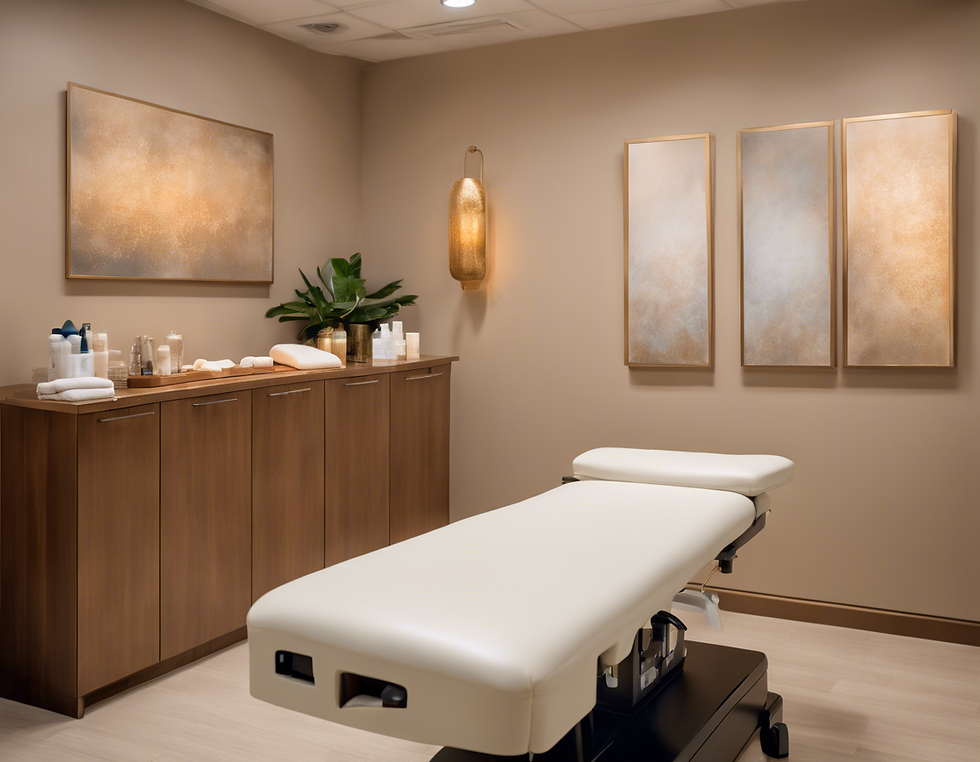5 Ways to Choose Your Reflexologist
- George Kiorpelidis

- Aug 7, 2024
- 3 min read

Key Things to Consider
Reflexology is a practice based on stimulating specific points on the feet, hands, and ears, which reflect the parts and organs of the body. This technique can help manage many disorders, such as those related to stress, hormonal imbalances, sleep, and digestive disorders. Choosing a qualified reflexologist is essential for a practical and satisfying experience that goes beyond relaxation.
The Role of the Reflexologist in Supporting "Well-Being" and Prevention

A Professional reflexologist does not just apply massage techniques; they offer honest, personalized support. The reflexologist works to restore the body's balance and reduce tension through sessions adapted to each client's specific needs. Therefore, This profession requires specialized training and a deep understanding of the mechanisms of the human body and the reflexes that regulate it. This skill level allows reflexologists to provide significant relief and contribute to the overall health of their clients.
1. Verification of the Reflexologist's Legitimacy
Before making an appointment, ensure the practitioner's professional quality since the state of France does not regulate this profession. It is the user's responsibility to check that the reflexologist has undergone solid training. The professional must preferably have obtained training recognized by the authorities (RNCP Title, in particular) or have validated training meeting the professional reference established by the Collegiate of Unions and Federations of Reflexologists, which brings together the representative organizations of the profession.
Professional Certification: An experienced and responsible reflexologist must be able to present certificates or attestations validating his training. These certifications and attestations should ideally come from institutions or centers specialized in reflexology. Serious programs often include in-depth theoretical learning coupled with hours of supervised practice.
Reviewing reviews and recommendations: Reading reviews left by other customers can provide valuable insights into the reflexologist's effectiveness and professionalism. A positive reputation and customer satisfaction testimonials strengthen the professional's credibility.
Preliminary meeting? Before starting the sessions, it is wise to discuss your needs and expectations with the reflexologist to check if his field of action corresponds to the request. This lets you discuss your needs and expectations and ask questions about his background and working methods. This exchange can help you assess whether the practitioner inspires confidence in you and meets your criteria or expectations.
2. Techniques and specializations

Each reflexologist can specialize in different types of reflexology ( palmar, plantar, auricular ). It is essential to discuss the techniques he uses with the professional beforehand and make sure that they correspond to your expectations and needs.
Importance of reflex zones in reflexology
Reflexology is based on the idea that certain body areas, including the feet, hands and face, have reflex points corresponding to different body organs and systems. By stimulating these areas through precise massage, the reflexologist can support the action of the body's natural self-regulating systems to promote relaxation and help manage stress and its associated disorders. For example, foot reflexology focuses on the feet where each point can be worked to target specific disorders, facilitating better pain management and improved sleep.
3. Experience and Feedback
The practitioner's experience treating similar cases is an essential factor. Client reviews, available on sites like Google Reviews or booking platforms, are necessary to assess the effectiveness of the sessions and the quality of the interaction and follow-up.
Online Appointment Management
Online appointment booking platforms can facilitate access to reflexology services, allowing clients to easily schedule sessions and consult other users' opinions. However, during a first meeting, a prior exchange with the practitioner may be necessary so that the client can check whether the professional's action corresponds to their expectations and needs. This system contributes to transparency and trust in the choice of a reflexologist while offering practical appointment management.
4. Practical and Logistical Criteria
Also, practical aspects such as geographical proximity, consultation times, prices and payment terms should be considered. Some insurance companies can partially reimburse reflexology sessions, so check with your insurance company to determine the reimbursement conditions.
5. Personal Feelings and Trust
The relationship with your reflexologist is fundamental. It is advisable to speak with the practitioner before an initial consultation, discuss your needs and ask questions about their background and working methods. This will allow you to assess whether the practitioner inspires confidence in you and meets your criteria or expectations.
In Conclusion
Choosing a reflexologist is a personal process that deserves careful consideration. Do your research, ask questions, and meet with potential practitioners (if possible). Following these tips will maximize your chances of finding a reliable reflexologist to meet your health and wellness needs.





Comments